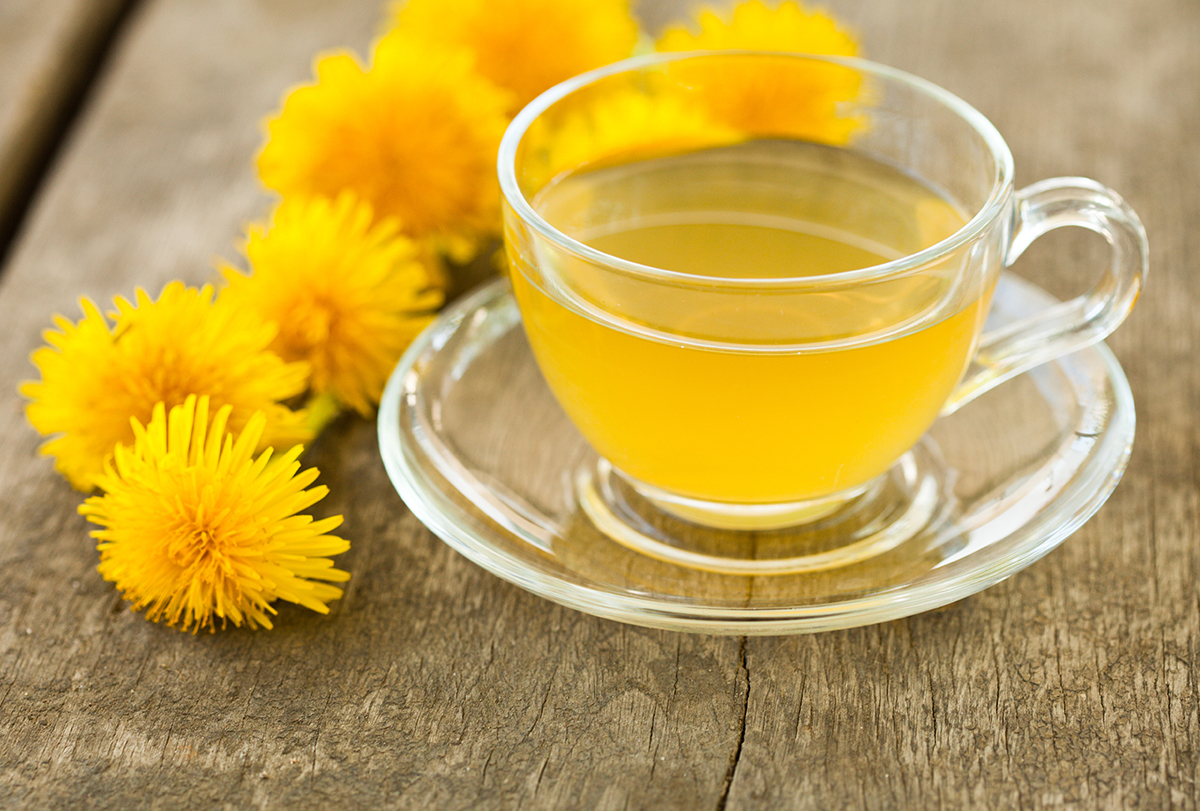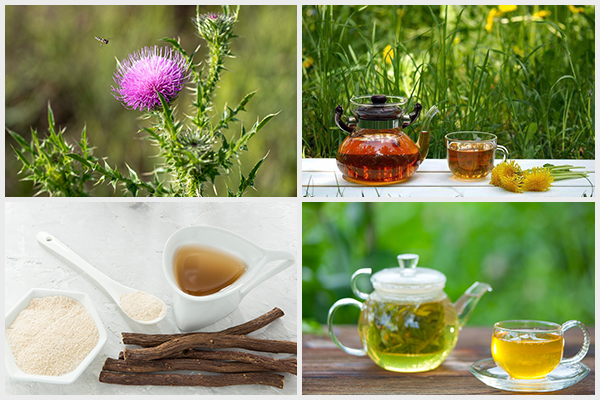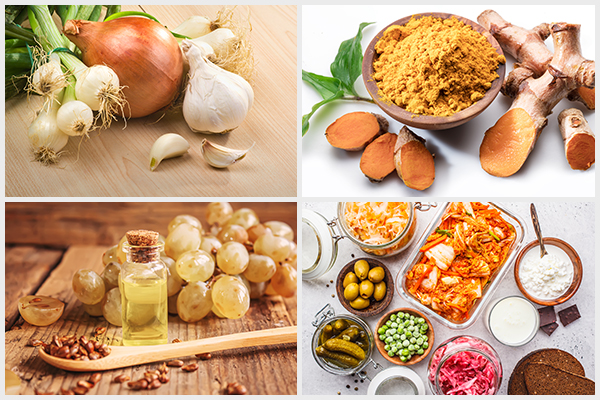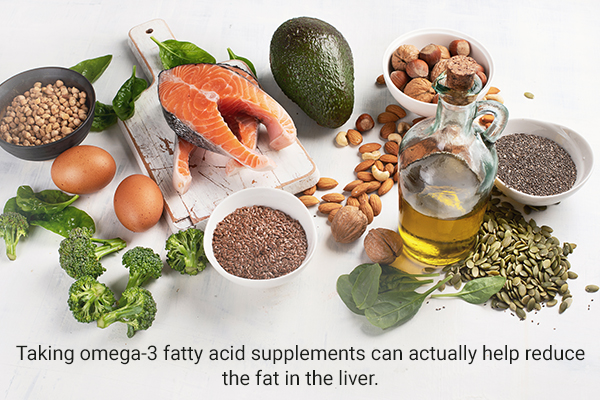In this article:
Cirrhosis of the liver is a condition where the liver tissue is replaced with scar tissue, leading to poor liver function and complications. It is a chronic disease that can be caused by a range of factors, including alcohol consumption, viral infections, and obesity. (1)(2)

While there are some medical interventions available for cirrhosis, some people prefer to use natural remedies to help improve their liver health.
This article will explore some home remedies for cirrhosis of the liver that may help improve liver function and slow down the progression of the disease
Home Remedies for Cirrhosis
The following natural remedies can help deal with cirrhosis of the liver and manage discomfort.
1. Consume milk thistle
Milk thistle seeds contain a special extract called silymarin, which has been used for a long time to treat liver problems.
Silymarin helps protect liver cells from damage caused by harmful substances and oxidative stress. It does so by scavenging free radicals and reducing the toxicity that can harm the liver. (3)
Studies have shown that silymarin can help people with liver conditions such as fatty liver disease, alcoholic liver disease, cirrhosis, and even drug-induced liver injuries. (3)
Milk thistle may help improve the survival of patients with alcoholic or nonalcoholic cirrhosis, a condition where the liver is damaged.
In one study, the use of milk thistle resulted in a potential improvement in survival, especially for those with alcoholic cirrhosis or less severe liver damage. (4)
Note: Remember that the effectiveness of milk thistle is uncertain due to limited and inconsistent evidence from studies. It may improve results from liver function tests, but its effects on other outcomes and different liver diseases are unclear. Its exact mechanism of action is not fully understood. Further research is needed to better understand its benefits and how it works. (4)
Milk thistle is commonly available as capsules, tablets, liquid extracts, and teas. Choose a form that is convenient and comfortable for you to take. Professionals suggest a dosage of 420 mg per day to be safe.
Some possible side effects of milk thistle include: (4)
- Gastrointestinal issues such as nausea, diarrhea, stomach discomfort, bloating, changes in bowel habits, or loss of appetite
- Headaches
- Itching, rash, hives, or eczema
- Feelings of weakness, fatigue, or difficulty sleeping
- Joint pain
- Nasal congestion and eye irritation
- Difficulties with sexual function
- Rarely, severe allergic reactions
2. Drink dandelion tea every day
Did you know that dandelions, those yellow flowers that pop up in your yard, could actually be good for your liver?
Scientists have found that a specific type of dandelion called Taraxacum officinale (TO) contains natural compounds (phytochemicals) that can help protect the liver from damage because of its potential effect on hepatic injuries.
In a recent study, researchers examined the effects of an extract from the roots of dandelion on preventing liver damage in rats. Blood tests showed lower levels of markers for liver injury, such as AST, ALT, ALP, GGT, and total bilirubin. (5)
Note: The root extract of TO may have protective effects on the liver against certain toxins. However, there haven’t been any studies on whether this extract can protect the liver in cases of severe liver injury such as acute-on-chronic liver failure (ACLF), which is a condition that occurs in patients with chronic liver disease with or without previously diagnosed cirrhosis.
Add dandelion leaves to salads or make dandelion tea. Just remember to use the dandelion from a reputed source, and consult with a healthcare professional if you have any existing liver conditions.

3. Drink licorice root tea daily
Licorice has some amazing properties that could help your liver stay healthy. A study has found three important substances in licorice: glycyrrhizic acid (GA), liquiritin (LQ), and liquiritigenin (LG). These can contribute to the protective effects of licorice on the liver.
Licorice also prevented fat from accumulating in the liver and restored the level of an important antioxidant called glutathione, which helps protect cells from damage.
The researchers concluded that licorice has anti-inflammatory properties and can boost the liver’s antioxidant defense. This means it could potentially protect your liver from damage. (6)
Licorice root is available in the form of tea. Prepare licorice root tea by adding 1 teaspoon of dried licorice root to a cup of boiling water. Let it steep for about 10 minutes, strain, and drink.
4. Drink green tea
People who drink green tea have a lower chance of getting liver disease. Green tea drinkers also have a reduced risk of getting a specific type of liver cancer called hepatocellular carcinoma. (7)
So, why not grab a cup of green tea and give your liver some extra love? It’s a tasty way to keep your liver happy and healthy!
5. Incorporate garlic and onion into your meals
Garlic and onion have been shown to help reduce oxidative stress in the liver. Oxidative stress is when harmful molecules damage your cells.
The combination of garlic and onion has a stronger effect compared to using each of them alone. They decrease fat buildup and improve liver health. (8)
Add crushed garlic or finely chopped onion to your cooking. They can be used in various dishes such as soups, stir-fries, sauces, and salads.
Note: One study suggested that high doses of garlic (0.5 g/kg) have the potential to cause liver damage. But the low doses of garlic (0.1 or 0.25 g/kg) seem to be safe for the liver. (9)
6. Add turmeric to your cooking
Turmeric contains a special compound called curcumin. When your liver gets stressed, it releases harmful chemicals that cause inflammation and damage. Curcumin can help fight these chemicals, thereby calming down the inflammation and preventing further damage.
Moreover, curcumin can also help your liver recover from damage. It helps activate special proteins that repair and regenerate liver cells. (10)
Add turmeric to your cooking. Sprinkle it on your veggies or mix it into your soups and stews.

7. Incorporate grape seed into your diet
Did you know that grape skin and seeds, which are usually thrown away by wineries and grape juice makers, actually contain powerful natural compounds?
Grape skin and seeds protect the liver, and they also help in healing it. They restore the levels of important proteins in the blood and reduce the harmful substances in the liver.
One dangerous consequence of liver damage is the buildup of collagen, which can lead to liver cirrhosis and failure. In one study, grape skin and seeds were able to reduce this collagen buildup in the liver. (11)
You can add grape seeds or grape seed extract to your daily diet in various ways. Sprinkle crushed grape seeds on your salads, yogurt, or oatmeal. Mix grape seed extract into smoothies or juices. Take grape seed supplements as directed, usually with a meal.
8. Take probiotics
The gut and liver are buddies and are connected via the gut-liver axis. Inside your gut, there are bacteria – some bacteria are good and help keep things in balance while some are harmful.
An imbalance in these bacterial populations, called dysbiosis, can cause trouble to your liver.
Probiotics are good bacteria that can help restore balance in your gut. By improving the balance of bacteria in your gut, probiotics can reduce harm to your liver. (12)
9. Follow a diet rich in omega-3 fatty acids

Nonalcoholic fatty liver disease (NAFLD) is a term for a common liver problem worldwide. It’s not caused by drinking too much alcohol, but rather by having too much fat in your liver, which can lead to serious liver issues such as cirrhosis and even cancer.
Lots of studies have been done on people with NAFLD, and they found that taking omega-3 fatty acid supplements can actually help reduce the fat in the liver. These special fats are found in certain foods such as fish, flaxseeds, and walnuts. (13)
Preventing the Progression of Liver Cirrhosis
To keep your liver cirrhosis from worsening, follow these simple steps:
- Completely avoid consuming alcohol and refrain from using any illicit drugs.
- Always talk to your doctor before taking any prescription medicines or over-the-counter drugs.
- Protect yourself against hepatitis A, hepatitis B, influenza (flu), pneumonia caused by specific bacteria, and shingles by getting the recommended vaccines. These illnesses can worsen liver cirrhosis, so vaccines can be a preventive measure.
- Focus on eating a well-balanced, nutritious diet. A healthy diet supports liver health and aids in overall well-being.
- Avoid raw or undercooked seafood, fish, and meat
- Maintain a healthy body weight. Obesity and excess body fat can increase the strain on your liver and worsen cirrhosis.
- Speak with your doctor about your individual risk of developing liver cancer.
Most-Asked Questions About Liver Cirrhosis
Can cirrhosis be cured?
There is no cure for cirrhosis, but treating the underlying causes can slow its progression.
Can cirrhosis be prevented?
Limiting alcohol intake, maintaining a healthy weight, and getting vaccinated against hepatitis can reduce the risk.
Can cirrhosis be reversed?
While scar tissue cannot be reversed, early intervention and lifestyle changes may improve liver function.
What is primary biliary cirrhosis?
Primary biliary cirrhosis (PBC) is an autoimmune liver disorder characterized by the progressive destruction of intrahepatic bile ducts, leading to cholestasis, cirrhosis, and liver failure.
Patients usually are asymptomatic at presentation but may experience fatigue or have symptoms of cholestasis (such as pruritus and steatorrhea) and cirrhosis (such as portal hypertension, fibrosis, and ascites).
Can cirrhosis be inherited?
Some forms of liver diseases that lead to cirrhosis can have a genetic component.
Can alcohol cause cirrhosis?
Yes, excessive and prolonged alcohol consumption is a common cause of alcoholic cirrhosis.
Is a liver transplant an option for cirrhosis?
In severe cases, liver transplantation may be an option for cirrhosis patients with end-stage liver disease.
What should I do if I suspect I have cirrhosis?
If you suspect you have cirrhosis, it’s important to consult a healthcare professional for proper evaluation, diagnosis, and treatment.
Final Word
Cirrhosis of the liver is a chronic condition caused by various factors such as alcohol consumption, viral infections, and obesity. While medical interventions are available, some natural remedies can help improve liver health.
If you suspect you have cirrhosis, consult a healthcare professional for proper evaluation and treatment.
 Continue ReadingCirrhosis of the Liver: Causes, Symptoms, Diagnosis, Treatment, and More
Continue ReadingCirrhosis of the Liver: Causes, Symptoms, Diagnosis, Treatment, and More
- Was this article helpful?
- YES, THANKS!NOT REALLY


